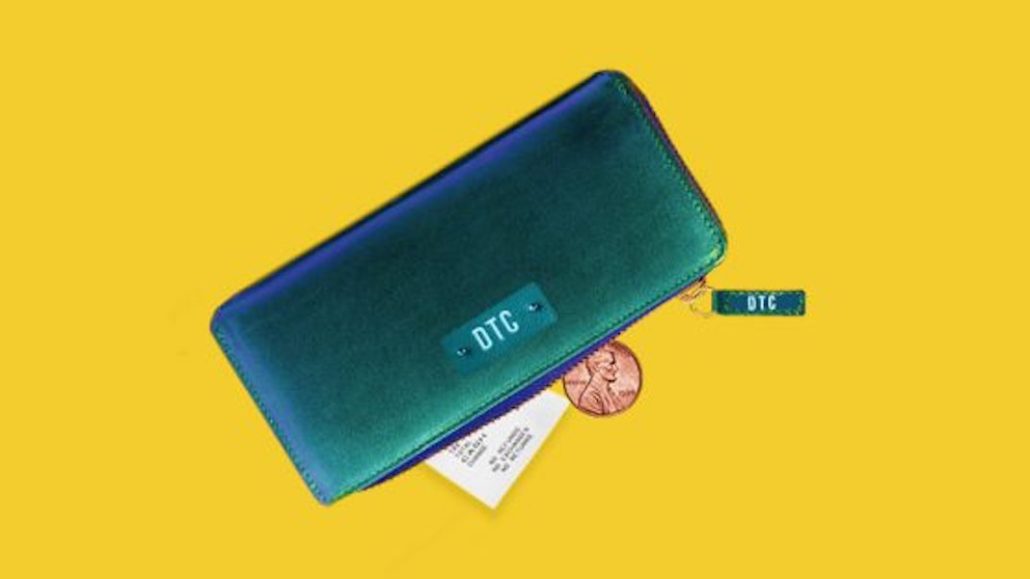Secure your place at the Digiday Media Buying Summit in Nashville, March 2-4
‘People won’t question our ability’: Why performance marketing agencies want to create their own DTC brands

Performance marketing agencies are exploring building direct-to-consumer brands in-house.
Doing so will not only allow agencies more control over the growth of a brand, but serve as a test case to prove strategies they want to pursue to potential clients, according to agency execs, who say the appeal of running their own DTC brands has grown as e-commerce sales have accelerated over the last year. Agencies like Boomn, Homestead Studios and Freelance Crew, among others, expect to debut new DTC brands during the first quarter of this year.
“People want to have ownership over their outcome,” said Ryan O’Connell, co-founder and chief operating officer of digital marketing agency Boomn. “It’s hard for agencies to look at the performance of their ad accounts, Shopify dashboards and see the types of returns they’re providing for clients and not be curious about what it would look like for themselves.”
This quarter the Kansas City, Missouri-based agency expects to roll out a brand in the consumables space — hot sauces, rubs, ranches and BBQ sauces — as well as a women’s health product. Part of the agency’s strategy when it comes to in-house DTC brands will be finding brands they believe could excel if given more attention and subsequently acquiring them from fledgling companies.
“From our standpoint, it allows a different level of speed when it comes to decision-making with inventory or scaling ads,” said O’Connell when asked why the agency now wants to run its own DTC brands rather than simply working with them. “Once we got to a good enough position we wanted to make those decisions internally rather than having to wait around for decisions to be made.”
Aside from the speed of decision-making, more control over brand strategy as well as customer experience has agency execs eyeing DTC brand creation. At least, that’s part of the appeal for Andrew Sneddon, founder of digital marketing shop Freelance Crew. The agency plans to introduce four new DTC brands to the market this year, one each quarter, with brands in the subscriptions and food categories. Sneddon declined to share more about the brands ahead of their release as the agency has “done a year of research” as well as made inroads with distributors.
“One of the main reasons we’re starting these brands — I know we’ll be able to make good money doing it — but another reason is that people won’t question our ability,” said Sneddon. “I’ll have an example with my brand. We’re doing X, Y and Z. Having a brand my team successfully running in-house, I’ll always have a case study.”
Others are working on DTC brands as a way to diversify their businesses. As previously reported by Digiday, the cost as well as the inconsistency of Facebook’s Ads Manager — Facebook is typically the go-to channel for performance marketing agencies — in particular has performance marketers and media buyers looking for ways to diversify their media dollars away from the platform. Some view adding DTC brands to the mix as a way to diversify their own revenue generation.
Taylor Holiday, managing partner at Common Thread Collective, a digital growth agency that acquires and operates e-commerce brands under its e-commerce holding company 4 by 400, cautions that agencies shouldn’t expect immediate success in launching a brand simply because they’ve helped grow their clients’ brands. Being aware of the pitfalls of building brands without “romanticizing equity deals” is necessary for agency execs looking to get into running DTC brands, noted Holiday, adding that 4 by 400 acquires brands rather than building them from scratch as doing so can be quite expensive.
“Anytime you launch a brand, it’s not a profit center so you’re basically pulling resources from what’s making money and allocating it toward something that’s not making money,” said Holiday, adding that the shop intentionally runs its e-commerce business separately from its agency.
Keeping the brands separate from the agency is part of the plan for Zach Stuck, CEO of Homestead Studio. Stuck is planning to unveil two brands this year and hire his shop to help the brands with growth marketing. Even with the awareness of the potential issues, the knowledge of what it takes to run a successful DTC brand after working with many has Stuck and the team curious about how their own brand would do.
“You learn with brands and see commonalities with successful ones,” said Stuck. “With all that knowledge it’s hard to be running a service-based business and not wonder what we could do ourselves.”
More in Marketing

Thrive Market’s Amina Pasha believes brands that focus on trust will win in an AI-first world
Amina Pasha, CMO at Thrive Market, believes building trust can help brands differentiate themselves.

Despite flight to fame, celeb talent isn’t as sure a bet as CMOs think
Brands are leaning more heavily on celebrity talent in advertising. Marketers see guaranteed wins in working with big names, but there are hidden risks.

With AI backlash building, marketers reconsider their approach
With AI hype giving way to skepticism, advertisers are reassessing how the technology fits into their workflows and brand positioning.








